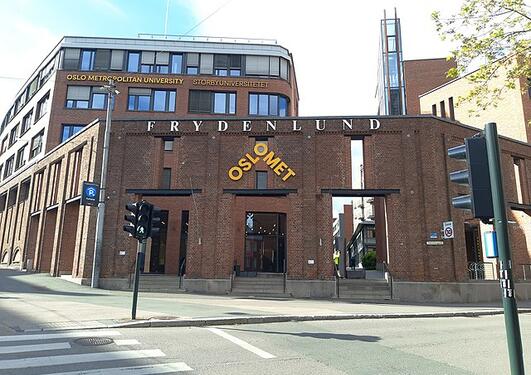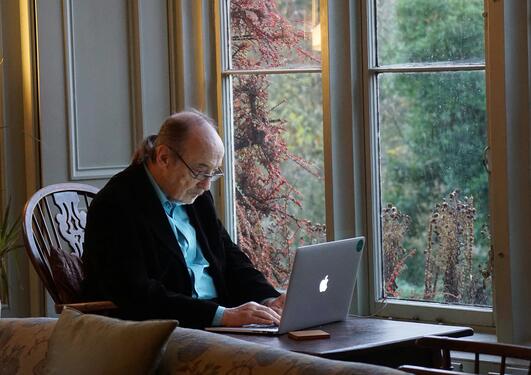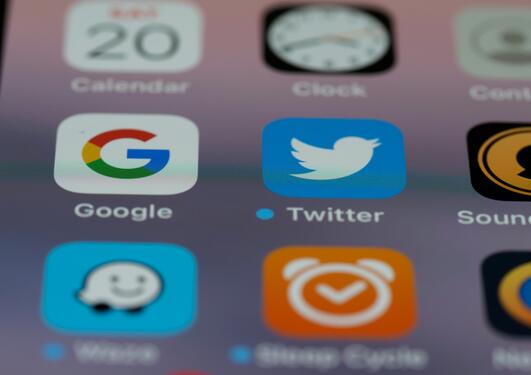
Bergen Media Use Research Group is part of the Department of Information Science and Media Studies, and is led by Hallvard Moe and Brita Ytre-Arne. The group researches how people use media - as audiences, users and citizens, and how they relate to each other and to society through media.
Calendar
New Publications
Infocomics vs Infodemics: How Comics Utilise Health, Data and Media Literacies (2024) Anna Feigenbaum, Julian McDougall & Ozlem Demirkol Tonnesen
Transferred expectations of human presence: Folk theories among older adults who are inexperienced users of online services (2024) Hilde Sakariassen and Brita Ytre-Arne.
The Burden of Subscribing: How Young People Experience Digital News Subscriptions. (2023) Marianne Borchgrevink-Brækhus, Hallvard Moe
Ritual check-in, shocked immersion, regained stability: A sequential typology of news experiences in crisis situations (2023) Hallvard Moe, Torgeir Uberg Nærland, Brita Ytre-Arne
Operationalizing distribution as a key concept for public sphere theory. A call for ethnographic sensibility of different social worlds (2023) Hallvard Moe
Growing out of overconnection: The process of dis/connecting among Norwegian and Portuguese teenagers (2023) - Ana Jorge, Mehri S. Agai and Leonor Cunha-Vas Martinho
Polarisation and echo chambers? Making sense of the climate issue with social media in everyday life (2023) - Hallvard Moe, Synnøve Skarbø Lindtner and Brita Ytre-Arne
Monitoring the infection rate: Explaining the meaning of matrics in pandemic news experiences (2023) - John Magnus Raghnildson Dahl and Brita Ytre-Arne
Citizens´news use during Covid-19: Concerns about misinformation and reliance on local news in Denmark, Finland, Norway and Sweden (2023) - Brita Ytre-Arne and Hallvard Moe
Travelling Girlhood: Feminist Discourses as Narrative Resources for the American Adaption of Norwegian High School Drama SKAM (2022) - Dag Skarstein and Synnøve Skarbø Lindtner
"Well, That´s Just My Opinion": The Principle of Expression and the Public Debate (2022) - Ida Vikrøen Andersen
How the public understands news media trust: An open-ended approach (2021) - Erik Knudsen, Stefan Dahlberg and Silje Nygaard
Disconnectivity synced with identity cultivation: adolescent narratives of digital disconnection (2022) - Mehri S. Agai
Understanding digital disconnection beyond media studies (2021) - Hallvard Moe and Ole Jacob Madsen
Privacy, energy, time and moments stolen: Social media experiences pushing towards disconnection (2021) - Trine Syvertsen and Brita Ytre-Arne
Towards responsible media recommendation (2021) - Mehdi Elahi, Dietmar Jannach, Lars Skjærven, Erik Knudsen et al.
Why so quiet? Exploring inhibition in digital public spaces (2021) - Hilde Sakariassen and Irene Costera Meijer
Women's emotion work on Facebook: Strategic use of emotions in public discourse (2021) - Hilde Sakariassen
Towards a critical understanding of data visualisation in democracy: a deliberative systems approach (2021) - Torgeir Uberg Nærland and Martin Engebretsen
Advancing digital disconnection research: Introduction to the special issue (2021) - Stine Lomborg and Brita Ytre-Arne
Doomscrolling, Monitoring and Avoiding: News Use in COVID-19 Pandemic Lockdown (2021) - Brita Ytre-Arne and Hallvard Moe
Intrusive media and knowledge work: how knowledge workers negotiate digital media norms in the pursuit of focused work (2021) - Faltin Karlsen and Brita Ytre-Arne
Nordic journalists’ conceptual roles and perceived influences - A European and inter-Nordic comparison (2021) - Jan Fredrik Hovden and Jari Väliverronen
Class and everyday media use: A case study from Norway (2021) - Jan Fredrik Hovden and Lennart Rosenlund
How the public understands news media trust: An open-ended approach (2021) - Erik Knudsen, Stefan Dahlberg, Magnus Iversen, Mikeal Johannesson and Silje Nygaard
Hostility online: Flaming, trolling, and the public debate (2021) - Ida Vikøren Andersen
The Democratic Significance of Everyday News Use: Using Diaries to Understand Public Connection over Time and beyond Journalism (2021) - Hallvard Moe and Brita Ytre-Arne
From Wanderers to Strangers. The shifting space of Scandinavian immigration debate 1970–2016 (2020) - Jan Fredrik Hovden
Instead of the deliberative debate: How the principle of expression plays out in the news-generated Facebook discussion. (2020) - Ida V. Andersen
Temporal ambivalences in smartphone use: Conflicting flows, conflicting responsibilities (2020) - Brita Ytre-Arne, Trine Syvertsen, Hallvard Moe and Faltin Karlsen
A digital public sphere: Just in theory or a perceived reality for users of social network sites? (2020) - Hilde Sakariassen
Populism and popular culture: a case for identity-oriented research. In Krämer, B. & Holtz-Bacha, C. (eds) Perspectives on populism and the media. (2020) - Torgeir U. Nærland
Affective Polarization in Multiparty Systems? Comparing Affective Polarization Towards Voters and Parties in Norway and the United States (2020) - Erik Knudsen
Disentangling the Influence of Recommender Attributes and News-Story Attributes: A Conjoint Experiment on Exposure and Sharing Decisions on Social Networking Sites (2020) - Mikael Poul Johannesson and Erik Knudsen
Audiences’ Communicative Agency in a Datafied Age: Interpretative, Relational and Increasingly Prospective (2020) - Brita Ytre-Arne and Ranjana Das
Enabling Cultural Policies? Culture, Capabilities and Citizenship (2020) - Torgeir U. Nærland, Jan Fredrik Hovden and Hallvard Moe
Methods for datafication, datafication of methods (2020) - Stine Lomborg, Lina Dencik and Hallvard Moe
Deliberative Systems Theory and Citizens’ Use of Online Media (2020) - Cathrine Holst and Hallvard Moe





